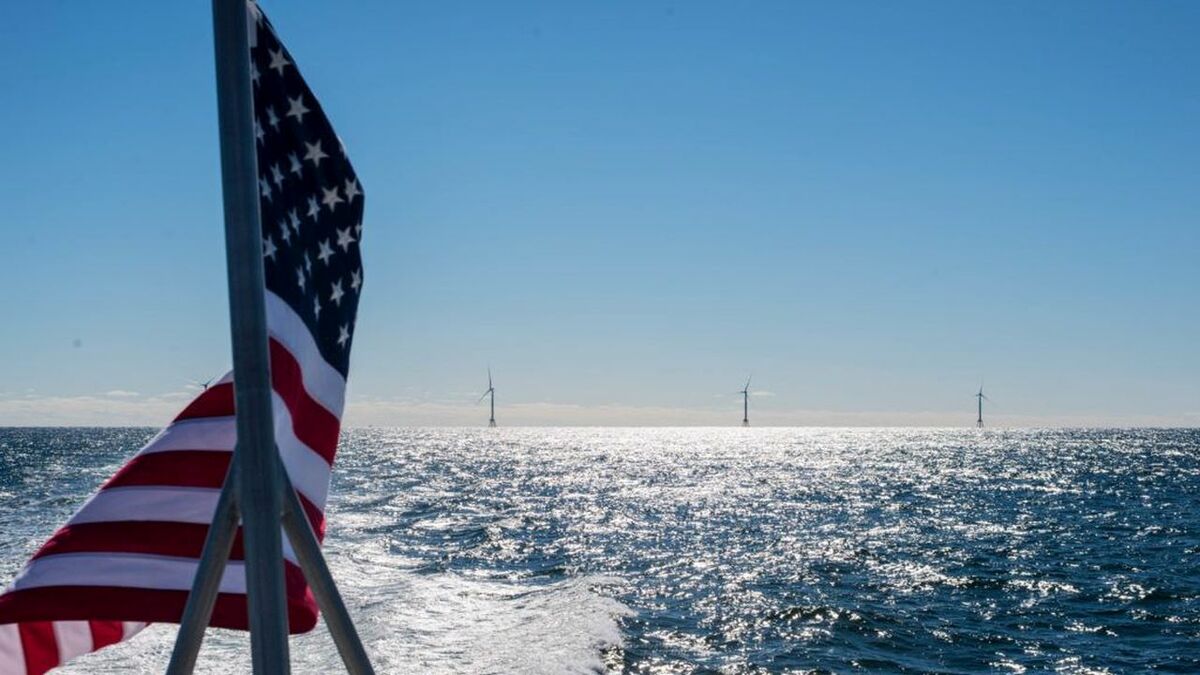 The AOWFA would have had a very negative effect and could have stopped offshore wind projects in their tracks (source: Brooke /NOAA)
The AOWFA would have had a very negative effect and could have stopped offshore wind projects in their tracks (source: Brooke /NOAA)
Legislation designed to create jobs for American workers that could have significantly reduced the availability of vessels required for offshore energy development in the US seem to have been halted in their tracks
Multiple industry associations had warned that although well-intended, the legislation – the American Offshore Worker Fairness Act (AOWFA) – would have an extremely adverse effect and significantly reduce the pace of the development of offshore wind and offshore oil and natural gas projects in the US.
The AOWFA, Section 518 of the Coast Guard Authorization Act of 2022 (CGAA of 2022) (HR 6865) was passed by the House of Representatives on 29 March 2022. Industry has been monitoring this situation for some time to see what action the US Senate Commerce, Science, and Transportation Committee would take in its version of the Coast Guard Authorization Act. On 14 September 2022, this Committee reported its version, S.4802 – Coast Guard Authorization Act of 2022, and it did not contain any AWOFA language.
“However, this does not necessarily mean that AOWFA is finished,” said the International Marine Contractors Association (IMCA) in response to questions from OWJ.
“As we understand the situation, the CGAA of 2022 will be included in the National Defense Authorization Act (NDAA) of 2023. The House passed its version of the NDAA earlier this year which included AOWFA. While the Senate has not passed its version of the NDAA yet, it is expected to take action on its version after the 8 November 2022 elections.
“The NDAA has become law each year for more than 60 years in a row. This means it is likely to be enacted later this year after the elections. The Senate and the House will have to negotiate whether some version of AOWFA or other related language will be included in the NDAA legislation that ultimately becomes law.
“It is difficult to predict the outcome of this issue at this time. IMCA will continue to oppose AOWFA language in order to support the nascent US offshore wind energy industry and encourage continued energy investment in the US Gulf of Mexico.”
Winston & Strawn partner and maritime practice chair Charlie Papavizas told OWJ, “The offshore wind industry has been watching developments very carefully and is encouraged by the recognition that the original proposal is unworkable. But there is still an urge to do what can be done to ‘Americanize’ the marine part of the offshore wind industry, and the issue is far from over.”
In addition to IMCA, the legislation was opposed by the American Clean Power Association and American Petroleum Institute. American Clean Power said that, as written, the House maritime crewing provision was “an existential threat to the future of offshore wind in the US.” It said the immediate result would be the delay and potential cancelation of 19 offshore wind projects with power offtake contracts or awards.
The legislation would have required that, within 120 days of passage, that crews on specialized offshore international construction vessels match the flag of the vessel or be American mariners as a condition of working on the US Outer Continental Shelf.
Industry bodies noted that there are insufficient numbers of trained American mariners for the provision to work, that that it would block the use of international vessels when there are, currently, no US-flagged specialized construction vessels to do the work needed.





